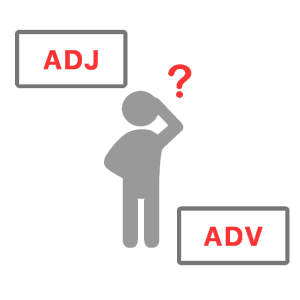
Home » Personal Development Archives » Neuro-Linguistic Programming Archives » Adverbs and Adjectives

Adverbs and Adjectives presuppose that something is going to happen. They add information to a verb (doing word) or noun (naming word) respectively. If I were to say “Johnny is running quickly”, “quickly” would be the adverb as it is adding more detail or qualifying the verb “to run”. The question is how will the experience be?
That is the question, you, as an NLP Practitioner needs to investigate. Adverbs and Adjectives is a wonderful part of the Milton Model that helps you do your work easier and quicker. It only needs some planning. For you to experience the information below. Adverbs and Adjectives.
Adverbs are words or phrases that modifies or qualifies an adjective, verb, or other adverb or a word group, expressing a relation of place, time, circumstance, manner, cause, degree, etc. Examples of Adverbs are:
Adjectives are words or phrases naming an attribute, added to or grammatically related to a noun to modify or describe it. Some examples of adjectives are:
Before we start to provide you examples of Adverbs and Adjectives in relation to the Milton Model let’s make clear the objective for which yo are going to use them. The scope is that you provide suggestions to your client that needs some help of you.
So it is important to maintain rapport, ask the right question, and apply every NLP technique you have learnt in your NLP Practitioner or NLP Master Practitioner Training, that is applicable with this client or person.
So, here we go, let’s examine some examples of Adverbs and Adjectives:
For today your challenge is to write down 100 examples of Adverbs and Adjectives. After reading the examples you will do this in a breeze, don’t you?
Remember, to increase your efficiency as a NLP Practitioner, know your positive intention for the message you want to convey, build rapport and pay attention on what and how you use language. Leave people and business in a better place that where you found them, every day! Put yourself to work and start making the NLP Milton Model part of your knowledge. The sooner you start, the sooner you benefit. Going the way we will publish more articles about Presuppositions and the Milton Model. Come back often as we tend to post frequently! Adverbs and Adjectives.
Mind Tools provides NLP Practitioner and NLP Master Practitioner Trainings and Certifications. We educate you according to the renowned, latest and highest standards set by the Society of NLP. We will train you thoroughly in all the corners of Neuro-Linguistic Programming and some extras we learned from Dr. Richard Bandler directly. Adverbs and Adjectives.
Our Licensed NLP Practitioner Training starts in:
On Checkout use the code NLP10PCTOFF and gain an extra 10% off our already discounted price.